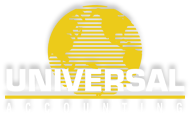E-mail allows you to correspond with your clients simply, inexpensively, and effectively. You can quickly fire off comments, questions, or feedback while you are thinking about it, and then move on to something else. It’s particularly advantageous for those hard to reach clients that are out in the field during the day, but check their email when they get back to the office.Netiquette consists of a few rules that will ensure you aren’t abusing online communications. To keep e-mail running smoothly, restrict superfluous information, and promote positive relations with your clients certain common courtesies are expected. Here are eight tips to remember:* Never forward e-mail without the original sender’s knowledge and permission.* Never send e-mail when you are angry.* Avoid sarcasm. The recipient cannot hear your voice or see your facial expressions, so the written message could be misinterpreted.* Don’t type your message in all capital letters. It’s the online equivalent of shouting.* Don’t forget to check all e-mail messages you send for grammar and spelling.* Don’t forget to check the “send to” line to be sure the message will be delivered to the right person.* Don’t be flippant. Ask yourself, “Would I say this out loud in a crowded elevator?”* Never use e-mail to send confidential information, medical records, proprietary information, job references, performance evaluations, offers of condolence, or formal thank-you notes.* When in doubt as to whether an e-mail is the appropriate form of communication, taking pen to paper might be the more courteous or judicious route.To learn more accounting and bookkeeping tips, click HERE.View Other features from this week’s Newsletter:Can You Be a Shameless Self-Promoter?Learn From Other Successful Accountants and BookkeepersGive Clients Something to Talk About
Share this post: on Twitter on Facebook on Google+




